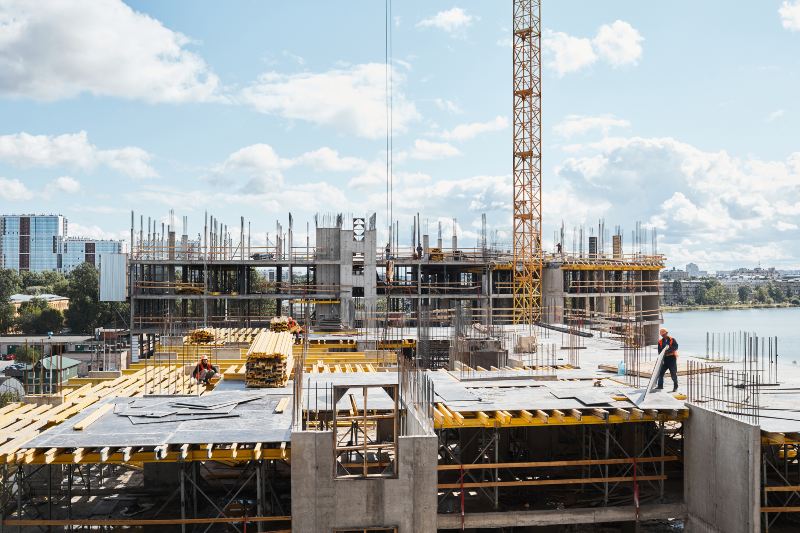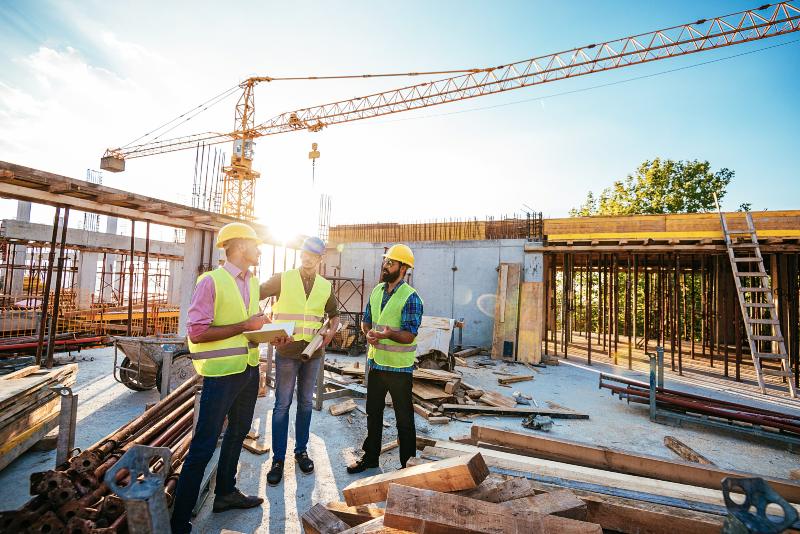Understanding the Difference between Hard and Soft Costs in Construction

Soft Costs vs. Hard Costs in Construction
Accurate cost estimation is one of the most challenging parts of a commercial construction project. Careful planning is required to ensure the endeavor is profitable for business owners. Two broad categories of expenses include hard costs and soft costs. Distinguishing between the two is essential for allocating resources accurately, anticipating expenses effectively, construction project cost breakdown, and ensuring a smooth construction process.
What are Hard Costs in Construction?
Hard costs are the tangible expenses directly associated with the physical building. Accurately accounting for hard costs is crucial to avoid budget overruns and keep the project on schedule. These costs are generally more predictable than soft costs, making them easier to budget and manage.
Examples of Hard Costs in Construction
- Construction labor and materials: This category includes wages for construction workers and the purchase of essential building materials such as steel, concrete, wood, insulation, and glass. Labor costs cover the payments made to various trades, including carpenters, electricians, plumbers, and masons. Material costs fluctuate based on market conditions but generally constitute a significant portion of the project budget.
- HVAC and utility installation: Installing heating and cooling systems, electrical wiring, and plumbing is vital to any construction project. These systems ensure that the building meets required functional and safety standards.
- Safety systems: Fire sprinklers, fire alarms, and building security systems fall under this category. These systems ensure building occupant safety and are often mandated by building codes and regulations.
- Interior and exterior finishes: This includes all the finishing touches that give the building its final appearance and functionality. Interior finishes encompass items like flooring, paint, wall coverings, and fixtures. Exterior finishes include siding, roofing, windows, and doors.
- Landscaping and hardscaping: Although sometimes overlooked, the area surrounding the building is a significant hard cost in construction. Once the building is erected, you need landscaping elements like trees, shrubs, and lawns, plus hardscaping features like retaining walls, sidewalks, and parking lots.

What are Soft Costs in Construction?
Soft costs are the indirect expenses that support the construction project but are not directly tied to the physical building. These costs are often spread over the entire project timeline and can continue even after construction is complete. Soft costs encompass a wide range of services that ensure the project adheres to regulations, meets design standards, and is financially viable. Although these costs are often harder to predict and manage, they are integral to the project’s success.
Examples of Soft Costs in Construction
- Design fees: These soft costs relate to hiring architects, engineers, and designers, the professionals who create blueprints and specifications to guide the construction project. Design fees vary widely depending on the project’s complexity and the designers’ expertise.
- Legal and accounting fees: Legal fees include costs for contracts, permits, and regulatory compliance. Accounting fees cover the financial management of the project, including bookkeeping, budgeting, and reporting.
- Land costs and surveying: This includes the purchase price of the land where the building will be erected, as well as the cost of conducting land surveys to determine property boundaries and topographical features. Surveying is crucial for planning an efficient layout and ensuring the project complies with zoning laws.
- Marketing expenses: For commercial projects, marketing costs might be incurred to promote the new building and attract tenants or buyers. This category includes advertising, public relations, and promotional events.
- Financing costs: These include interest payments on loans obtained to finance the construction project. They also cover loan origination fees and other banking charges associated with securing and managing project financing.
- Environmental assessments: These assessments ensure compliance with environmental regulations. Expenses might include studies on the project’s environmental impact, soil testing, and sustainability certifications.
- Taxes and governmental charges: This encompasses property taxes, permit fees, and other charges levied by local, state, and federal governments. These costs are often necessary to obtain the legal approvals required for construction to proceed.
- Furnishings and equipment: This includes the cost of furniture, office equipment, and other movable items that will be used in the completed building. These costs can be significant, especially in commercial and retail spaces where the necessary furnishings are crucial for the building to operate as intended.
Why Choose Advanced Building Corporation?
If you’re looking for commercial construction services in South Central Wisconsin, Advanced Building Corporation can meet your needs. We have over 30 years of experience meticulously planning for and managing hard and soft costs in construction. Thanks to our comprehensive approach, we can confidently ensure on-time completion and budget adherence. Contact us today for expert advice and project management tailored to your construction needs.
